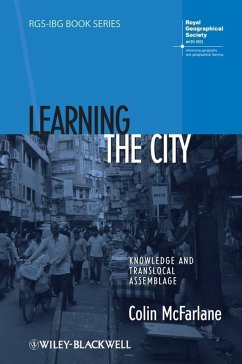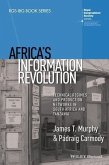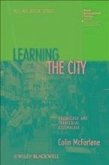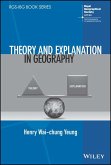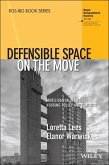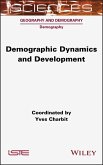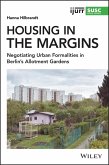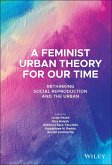Dieser Download kann aus rechtlichen Gründen nur mit Rechnungsadresse in A, B, BG, CY, CZ, D, DK, EW, E, FIN, F, GR, HR, H, IRL, I, LT, L, LR, M, NL, PL, P, R, S, SLO, SK ausgeliefert werden.
"This book is a significant step in bringing learning tothe core of urban study... This volume's detailedfieldwork effectively supports its desire to see learning occupy acentral place in the production of more socially justurbanisms." (Area, 1 May 2013)
"Learning the Cityis a critical academic contributionuseful for scholars of the field. found it particularlyuseful for my research on policy circulation of Bus Rapid Transitconcepts through the South African city . . . While Learning theCityis probably too sophisticated for younger readers, it is sureto become indispensable for academics of thediscipline." (Geography Helvitica, 1 December 2012)"Through Learning the City McFarlane has made a majorcontribution to our understandings of the urban. In its commitmentto the diverse and lively practices through which the city islearned and known, in its engagement with the diverse forms ofagency and political practices through which agency is assembledand re-assembled the book enlivens understandings of spatialpolitics. It is also a text that is animated by a powerful sense ofhope that cities might come to bere-assembled in different waysthat are more equitable and more open to different agentic forcesand contributions." (Society and Space, 1 November 2012)
"There will certainly be a range of contributors that join in onthe exciting task of making these links. In Learning theCity, McFarlane successfully manages to open the black box ofurban learning in widening the perspective to acknowledge diverseurban learning practices, which may even bear a transformativepotential in certain contexts." (International PlanningStudies, 23 October 2012)
"Urbanism, McFarlane believes, needs a theory of learning;throughout his book he builds a very sophisticated one...[he]brings us closer to the material stuff of urban life andpolitics...a kind of urbanism in motion, whereby what we cometo term 'knowledge', 'infrastructure' and'resources' are never simply 'there', butmust be translated, distributed, coordinated, perceived andinhabited". (International Journal of Urban and RegionalResearch, Volume 38.1, January 2014)."Innovative in its approach and rigorous in its coverage, this bookis an important contribution to the field of urban studies andhuman geography. It challenges the standard format of the researchmonograph and introduces new vectors of knowledge and debate to thestudy of cities. In a world where the usual North-South dichotomiesare being disturbed, McFarlane's emphasis on a postcolonialapproach to practices of learning is a valuable framework."
--Ananya Roy, University of California
"McFarlane's work stands out in that it tells us how residentsfrom various walks of life actually learn to operate inheterogeneous and often volatile urban environments. Insteadof assuming that urban dwellers walk around with preconceived mapsin their heads, this book provides a comprehensive account of thevarious practices, mobilizations and tools they use over time sothat the city becomes a staging area for new capacities andpotentials."
--AbdouMaliq Simone, Goldsmith College, University ofLondon

